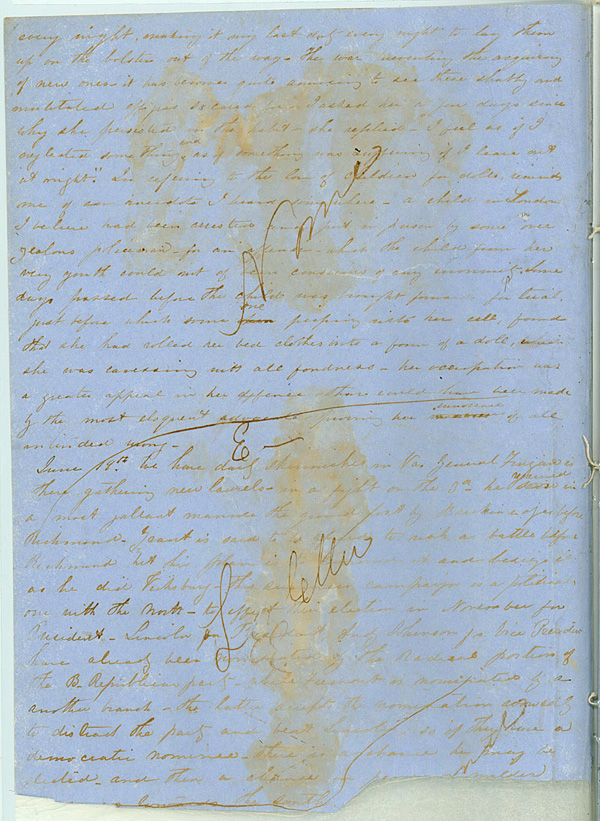Lincoln Letters
Ellen Call Long diary, fragments, 1864-1865 (Page 1 of 10)
Series: (M92-1) Box 12, Folder 1, Item 1
Lincoln Letters
Lincoln Letters

June 19 [1864] We have daily skirmishes in Va. General Finegan is there gathering new laurels—in a fight on the 3rd—he regained in a most gallant manner the ground lost by Breckinridge before Richmond. Grant is said to be afraid to risk a battle before Richmond, but his plan is to surround it and besiege it as he did at Vicksburg. This summer’s campaign is a political one with the North to affect their election in November for President—Lincoln for President, Any Johnson for Vice President have already been nominated by the Radical portion of the Black Republican party, while Freemont is nominated by another branch. [1]
Footnotes
[1] General Joseph Finegan commanded a portion of the Florida Brigade that served under Robert E. Lee’s Army of Northern Virginia. The diary refers to Finegan’s actions in the Battle of Cold Harbor on June 1-3, when he led a successful counterattack to retake ground given up by General John C. Breckinridge’s division. Lincoln’s reelection depended on the success of Union armies in the summer campaigns of 1864. General John C. Fremont briefly stood against Lincoln as the nominee of a factional party of Radical Republicans who did not believe that Lincoln was acting aggressively enough to end slavery. As a result of continued Union military successes, however, especially Sherman’s capture of Atlanta on September 2, 1864, Lincoln won the election. Pro-slavery southerners used the term “Black Republicans” as an insult to identify the Republicans as supporters of black equality.
Additional: This portion of the Call and Brevard papers contains fragments of Ellen Call Long's diary from 1864 and 1865. The diary is in very poor condition; however, there are many legible references to Lincoln plus her observations about his assassination, the Federal pursuit of the conspirators, and the journey of Lincoln's funeral train across the North. The transcription begins with excerpts from 1864 and continues chronologically.

 Listen: The Latin Program
Listen: The Latin Program